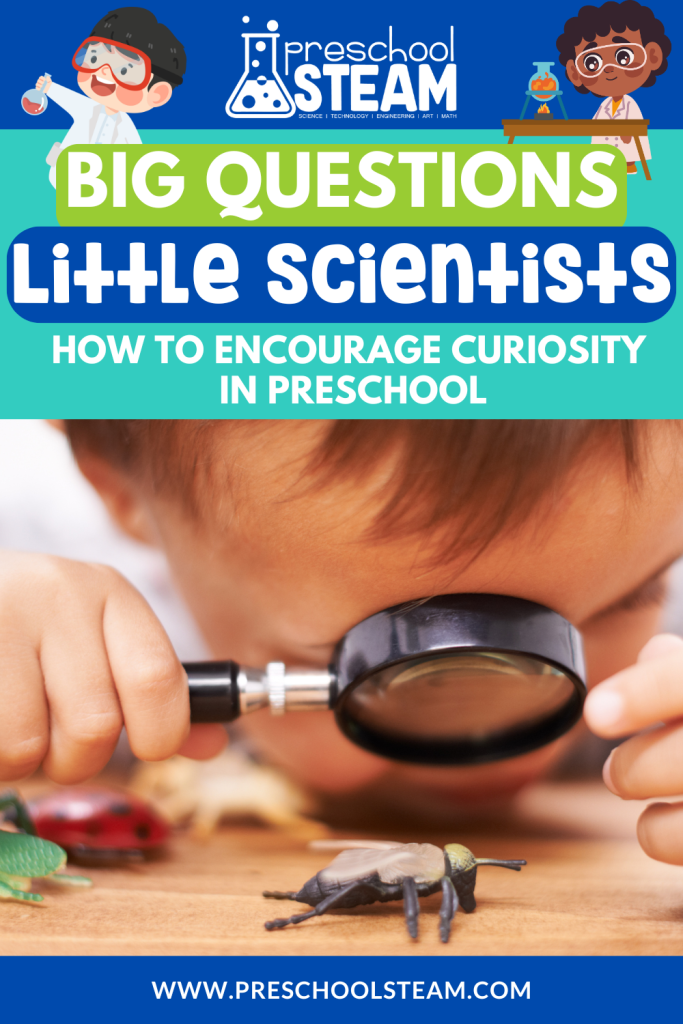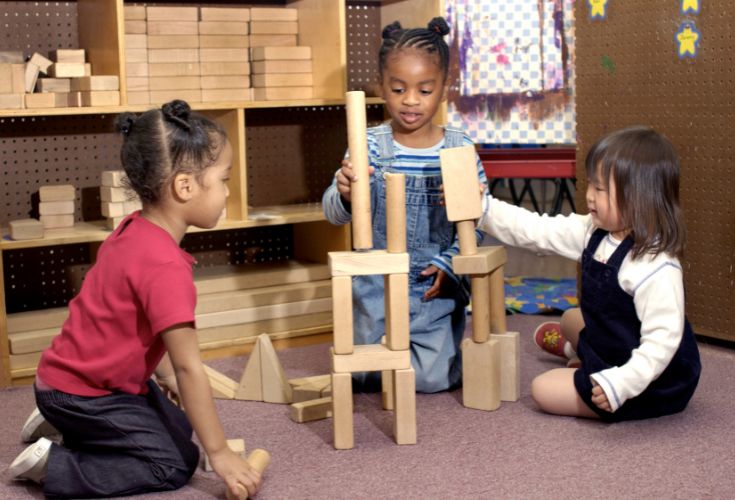“Why is the sky blue?”
“Where does the rain go?”
“Do fish sleep?”
If you’ve spent any time with preschoolers, you know their days are full of big, curious questions. And while it’s easy to feel pressure as the teacher to have all the answers, here’s the truth: you don’t have to.
In fact, not knowing is one of the best ways to encourage children to think and explore like scientists.

Why Big Questions Matter
When children ask questions, they’re doing what scientists do: noticing, wondering, and seeking answers. Every “why” is an opportunity to:
- Spark critical thinking
- Encourage problem-solving
- Build language and communication skills
- Develop persistence and curiosity
What to Do When You Don’t Know the Answer
The best response isn’t always a quick explanation. Try these strategies instead:
1. Turn it back to the child
- “That’s a great question. What do you think?”
- This validates their curiosity and encourages them to make predictions.
2. Explore together
- Grab a book, look outside, or try a hands-on test.
- Model that grown-ups are learners too.
3. Celebrate the mystery
- Some questions don’t have simple answers (like why the sky is blue).
- It’s okay to say: “That’s a big question scientists are still studying!”
Shifting from Answers to Inquiry
Your role isn’t to know everything — it’s to guide the process of discovery. Here’s how you can reframe:
- Instead of: “Because that’s how it works.”
- Try: “Let’s test it out and see what happens.”
This keeps the focus on curiosity over correctness.
Example in Action
Child: “Why do some things float and others sink?”
Teacher: “That’s a good question. Let’s gather some objects and test them in water.”
Result: Suddenly, a simple question turns into a STEAM investigation full of predictions, testing, and observation.
Final Thought
Big questions can feel overwhelming in the moment, but they’re also where the magic happens. You don’t need to have all the answers — you just need to keep the wonder alive.
The next time a child asks “why is the sky blue?” remember: you’re not just answering questions, you’re raising little scientists.
Want more ways to turn big questions into STEAM learning? They’re inside the Preschool STEAM Membership.

Leave a Reply